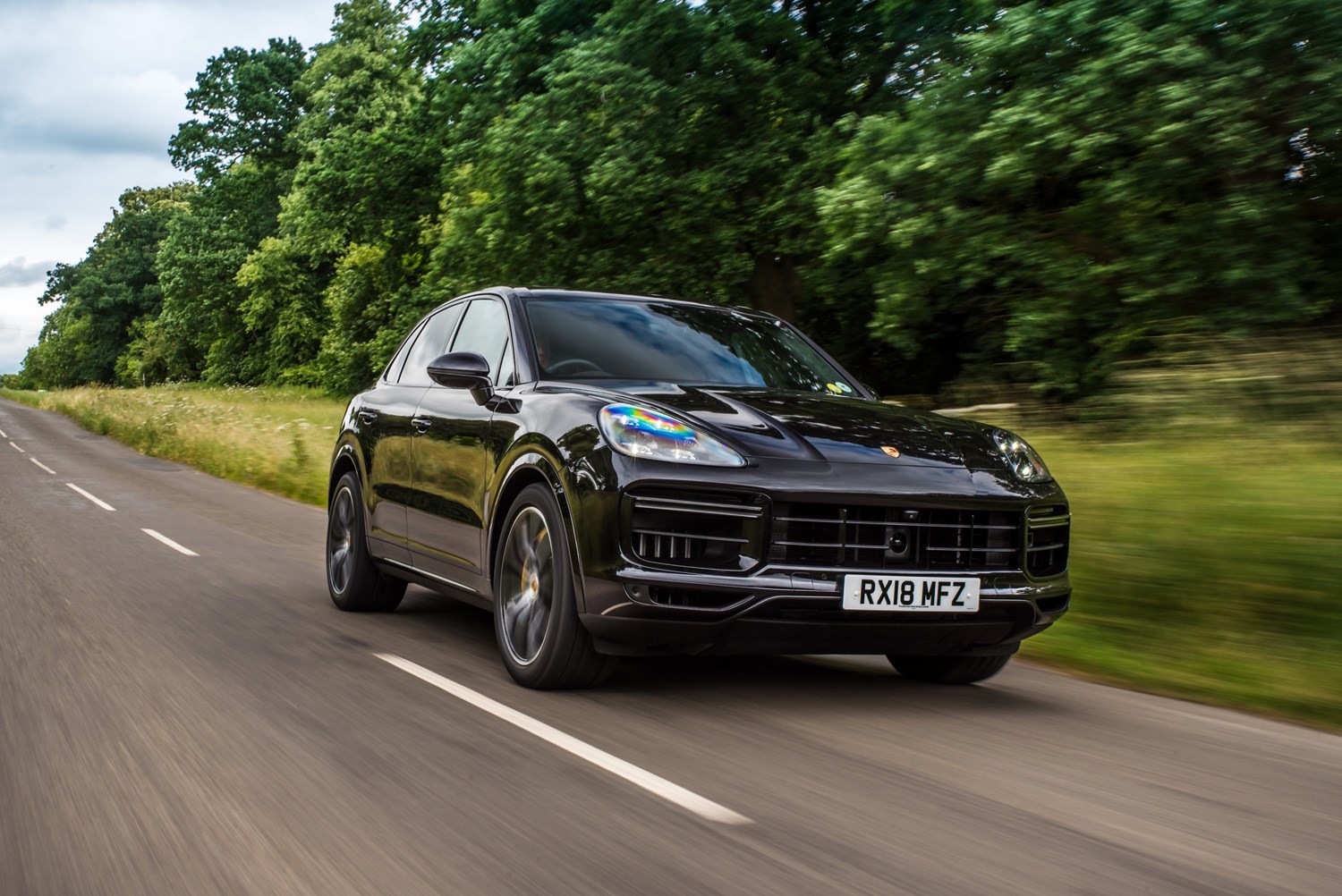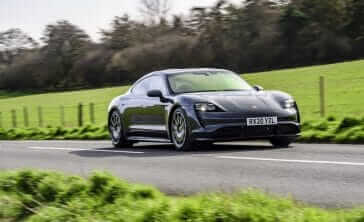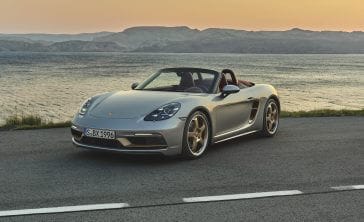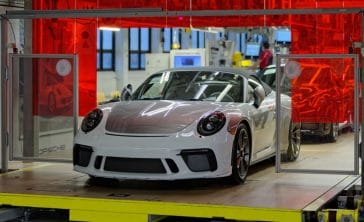Model review
You might think of Porsche as a sports car manufacturer known for key models like the 911 and Boxster, but these days it’s actually SUVs which the brand produces the most of, and also makes the most money from. In fact, it’s widely acknowledged that were it not for SUVs, Porsche wouldn’t have been able to keep developing its magnificent sports cars.
But the model that kicked off this SUV offensive? Well, that’s the Cayenne, which emerged in 2002 as the brand’s first 4x4 model, and arguably the first sports SUV - though BMW might have something to say about that, given that its X5 came a few years earlier. With a face only a mother could love, the first-generation Cayenne certainly wasn’t a looker, but it soon gained popularity thanks to its great driving experience and roomy interior – a combination not seen on a Porsche before.
Nameplates used on the brand’s sports cars would follow – including the ‘S’, ‘Turbo’ and ‘GTS’. There would be several facelifts before Porsche introduced a more stylish and modern second-generation car in 2010, which would be available with a range of hybrid powertrains – something that continues today.
Latest model
Porsche is known for its evolutionary method of styling, and that applies to the Cayenne, too, with the third-generation car arriving at the end of 2017 with a subtle redesign – key highlights being fancy new lighting and a full LED rear light bar. It was one of the first cars to feature the latter.
The new Cayenne is also lighter than the car it replaces thanks to its new construction, while the interior is quite simply show-stopping, mostly down to its huge widescreen infotainment system. It would soon be followed by a range of derivatives, including Turbo, GTS and plug-in hybrids. In 2019, the standard SUV body was joined by a more stylish ‘Coupe’ model, bringing more rakish styling, though with no massive dent in practicality. This is also offered with the same extensive range of powertrain options.
Value for money
Unsurprisingly given the Porsche emblem on the bonnet, the Cayenne is not a cheap car, with entry-level cars starting from £59,150. While the standard kit looks generous on paper, including a reversing camera, a large touchscreen and LED headlights, it’s not as well-equipped as you might expect it to be for its price. That’s because Porsche offers an extensive options list, but with many pricey features, it can quickly ramp up the price. Safety systems such as lane-keep assist (£783) are also offered as an option, which is a bit disappointing given most cars a third of the price have this included.
Prices also rise significantly as you gain more power – the top-spec hybrid models costing almost £130,000, even before any option boxes have been ticked.
While early Cayennes might now be available for as little as £5,000, Cayennes in general do hold their value pretty well. An eight-year-old low-mileage car, for example, will still set you back £20,000, while at the time of writing a used example of the latest-generation Cayenne would still cost £50,000. It’s certainly not one of those cars you can expect a big nearly-new discount on.
Looks and image
Porsche manages a remarkable thing with its Cayenne by bringing sleek styling to a large SUV. While not having the elegance of a sports car, it’s definitely a handsome thing – not least thanks to its attractive grille and fancy lighting. If you value style, the addition of the new Coupe model will also be appreciated thanks to its sloping roofline that only adds to this SUV’s appeal.
Porsche has seriously upped its game on the latest Cayenne’s cabin, and actually made it feel sportier – not least thanks to the addition of a cool clock in the centre of the dashboard and the racing car-like displays. You also sit lower in the Cayenne than you do in other SUVs, while the quality is superb throughout. The 12.3-inch touchscreen is also a great addition on this latest model, while the haptic glass-like buttons on the centre console are a modern touch, though they do take time to adjust to.
But it’s behind the wheel where the Cayenne impresses most. For something of this size, it’s remarkable how well it handles, with the agility that could embarrass much smaller and lighter cars. There’s also next to no body lean, while a range of punchy powertrains makes this Porsche unbeatable in the large SUV category when it comes to driving pleasure.
Space and practicality
The Cayenne is also impressively roomy, though you’d expect this to be the case with a large SUV. Space throughout is generous, while three adults could easily get comfortable in the back seats.
The boot is also huge – measuring up to an impressive 770-litres in its most practical iteration. Unlike rivals like the Range Rover Sport and BMW X5, however, you don’t have the option of a third row of seats.
Coupe models, with their sloping roofline, are unsurprisingly not as practical as the standard car. Boot space reduces to 600 litres (which is still a good size), while rear headroom isn’t quite as generous. The Coupe also comes with the option to remove the middle rear seat in the back, though we struggle to see why you would choose this – five seats is a far more practical option.
Engines
While diesel cars might be a dying breed, it’s still a popular fuel type for SUVs. Not for Porsche, though, which made the decision to scrap diesel-powered models in 2017, leaving just petrol and plug-in hybrid models to choose from. All models are all-wheel-drive and feature an eight-speed tiptronic automatic gearbox, too.
The standard ‘Cayenne’ kicks off the range with its 335bhp 3.0-litre V6 petrol engine. Despite being the ‘entry-level’ model, performance doesn’t feel that way as it can sprint to 60mph in just six seconds and reach a top speed of 152mph. The Cayenne E-Hybrid, meanwhile, mates this engine with an electric motor and battery to produce a combined 456bhp – knocking the 0-60mph time down to 4.8 seconds. At the top of the six-cylinder Cayennes is the ‘S’ model, which features a 434bhp 3.0-litre engine and can achieve 0-60mph in five seconds.
Moving to the V8 models, the latest GTS – arguably the best model to drive in the line-up – uses a 454bhp 4.0-litre V8, enabling a sprint to 60mph in 4.6 seconds. Following this is the Turbo, which features the same engine, but turned up to a mighty 542bhp. With this 0-60mph can be met in under four seconds. Right at the top of the range is the plug-in Turbo S E-Hybrid, which uses the engine from the Turbo and combines it with an electric motor and battery. The combined result is a huge 671bhp, which means the Cayenne can reach 60mph in an astonishing 3.6 seconds, while being able to hit a claimed top speed of 183mph.
Running costs
If you’re looking to keep an eye on running costs, it’s the E-Hybrid models you need to look out for. With the ability to run on electricity for 27 miles once the battery is charged up, it means the Cayenne could return a claimed 88.3mpg, with CO2 emissions of 73g/km. You really need to charge up regularly to ever see those figures, though, as it’s exceptionally thirsty when just treating it as a petrol model.
And speaking of thirst, all petrol models will be costly to run – even the standard Cayenne model can return just 24.6mpg, with CO2 emissions of 259g/km. This means initial car tax bills are also steep, while it will be pricey to insure as well, thanks to its grouping. As with any large SUV, servicing costs will be steep.
Things to look out for
Given the Cayenne doesn’t sell in huge numbers, not a huge amount is known about its reliability. Though it should prove dependable, it’s worth considering the engineering involved in it and the expense of what it could cost if it goes wrong. We’d recommend having any used example mechanically inspected before buying and also taking out a used car warranty.
Rivals
Conventional large SUVs that rival the Cayenne include the BMW X5, Audi Q7, Mercedes GLE and Range Rover Sport, while if you’re looking at the Coupe model, the BMW X6, Audi Q8 and Mercedes GLE Coupe are its closest competitors.
If you’re looking at the most powerful of Cayennes, you could pitch against some seriously powerful sports SUVs – including the Aston Martin DBX, Bentley Bentayga and Lamborghini Urus, though all of these are noticeably more expensive.
Depreciation
With plenty of badge appeal, the Cayenne is a model that holds its value well by premium large SUV standards – particularly on nearly-new models, which don’t plummet in value in the same way many of its rivals do.





